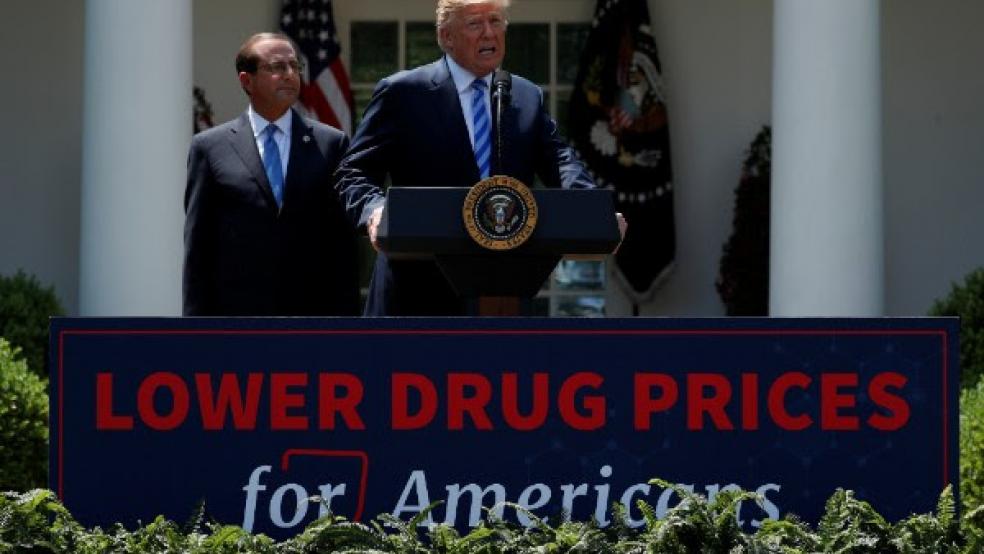President Trump wants to get more aggressive on lowering some Medicare drug prices.
The Trump administration last year proposed using an index of international drug prices to set prices for certain drugs under Medicare. The proposal would have lowered some prices by 30% relative to where they are now, but would have still left them higher than they are in other developed countries, with a target price set at 126% of the international average.
That wasn’t good enough for Trump, who wants the U.S. to be paying less than other countries, Health and Human Services Secretary Alex Azar said Wednesday. “His view, which he has articulated publicly, is that America ought to be getting the best deal among developed countries,” Azar said at an event hosted by Axios. “And so that's the type of proposal we're working on.”
Trump had said in July that he was planning an executive order setting up “most favored nation” status for the United States on drug prices, but Azar said Wednesday that the plan would take the form of a regulatory proposal from his department.
Dueling plans: The Trump proposal would set an even lower benchmark than what congressional Democrats have proposed, Axios’s Catlin Owens notes. Pelosi’s bill would allow Medicare to negotiate some drug prices with manufacturers and set a ceiling of 120% of what other countries pay, with those prices also applying to private insurance plans. But the White House last week rejected House Speaker Nancy Pelosi's drug pricing bill, calling it “unworkable.” The administration’s proposal, by contrast, would only lower prices for physician-administered drugs under Medicare and would not extend those savings to drugs sold at the pharmacy counter or covered by private insurance.
The bottom line: It’s not clear if or when the administration proposal might be finalized. The idea of an international price index already faced pushback from Republican lawmakers and the pharmaceutical industry, and a lower target price will only stiffen the opposition. “The lower target price is obviously a change for the worse from industry’s perspective,” Cowen Washington Research Group analysts wrote in a note to clients. “However, in the absence of other changes to enforce the ‘target price,’ it remains highly uncertain whether the proposal could ever actually be implemented in the US.”





